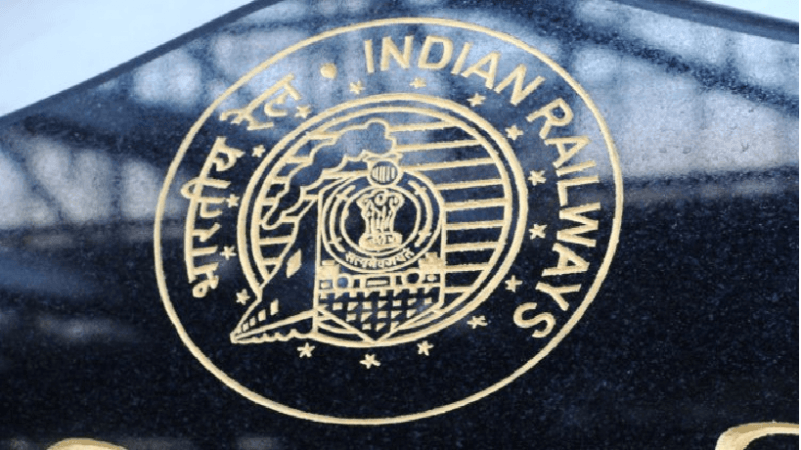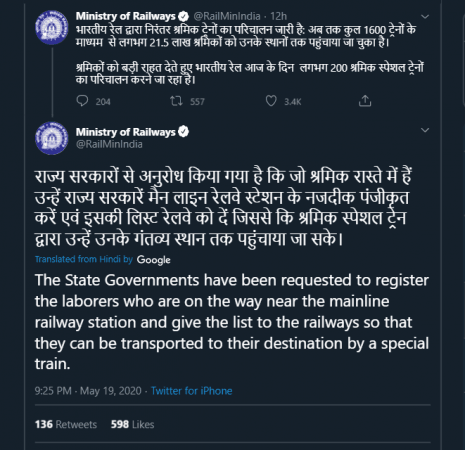In its new decision, the Indian Railways has announced to resume its non-AC passenger train services from June 1. The Railways will expand passenger train services from 15 to 200, which will run under the new timetable.
"The fare of these trains will be minimal sleeper rates and can be availed by all categories of people," a railway official said. They will be plied in addition to the Shramik special and the air-conditioned special trains which are currently being operated on the Rajdhani routes connecting 15 major cities to Delhi.

Tickets to be available online only
No tickets will be sold at any railway station to travel in the new passenger trains. All categories of passengers will be allowed to book tickets which will be available online. The online booking of these trains shall commence in a few days. The routes and schedule of these trains will be intimated soon.
However, the railways is yet to announce which routes the trains will run on. Earlier, the railways had cancelled all its regular passenger services till June 30.

Railways said the move to start these 200 trains would also be helpful for migrants who can avail these trains if they are unable to board the Shramik Special trains.
The decision to introduce 200 more passenger trains has come two days after the Central government extended the nationwide lockdown in view of the soaring cases of coronavirus.
In addition, the Indian Railways is also going to double the number of Shramik trains to bring more relief to the migrants rendered jobless and stuck in other states due to the coronavirus-induced lockdown.
Shramik trains for migrants
More than 21.5 lakh migrants have been transported to their home states through Shramik special trains in 19 days. Till May 19, more than 1,600 trains to ferry migrants to their home states have been run.
The railways have also appealed the migrants to not panic, saying efforts were underway to ensure all of them reach their home states at the earliest.
Railways have also asked the state governments to identify and locate the migrants, who have been walking on roads with their belongings to reach their native places and ferry them to the nearest mainline railway station after registering them at the nearest district headquarters so that arrangements could be made for their further travel through Shramik trains.

















